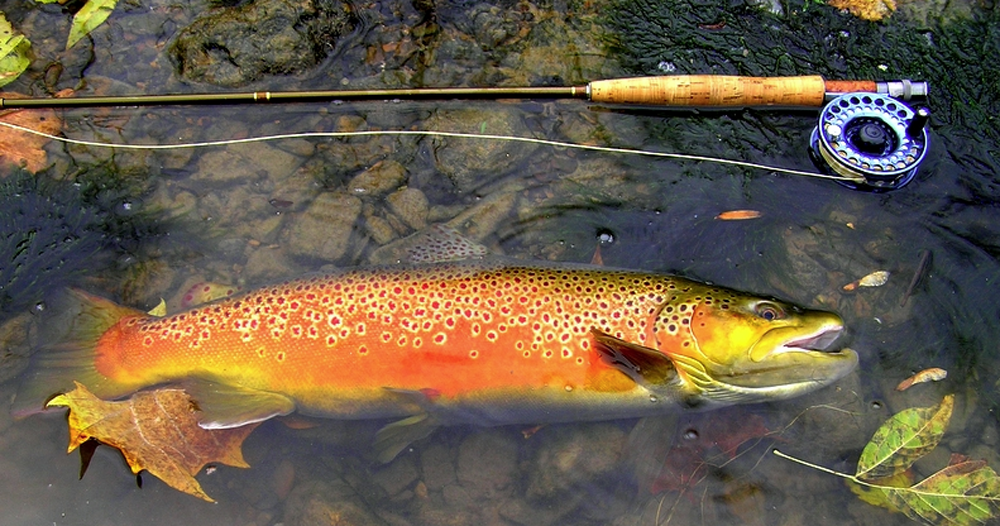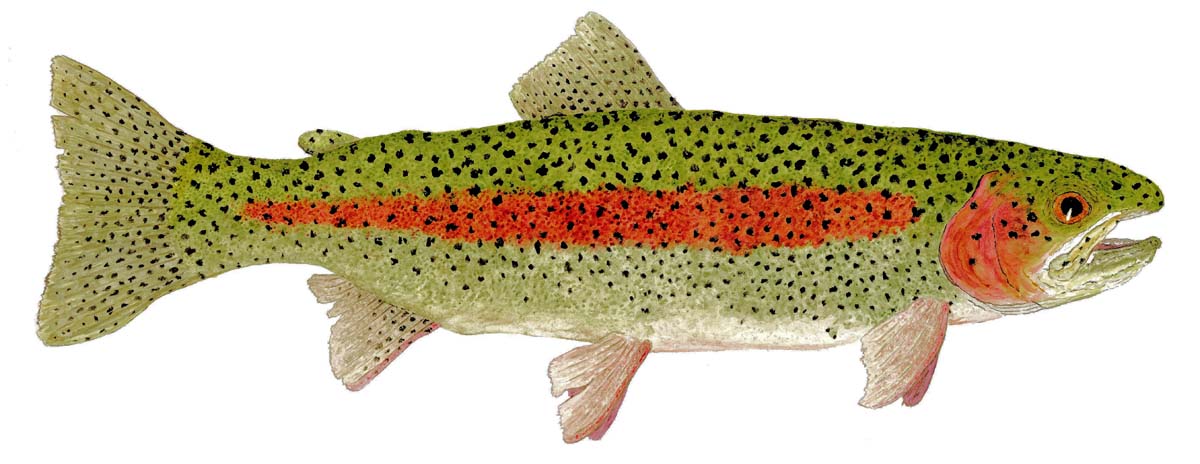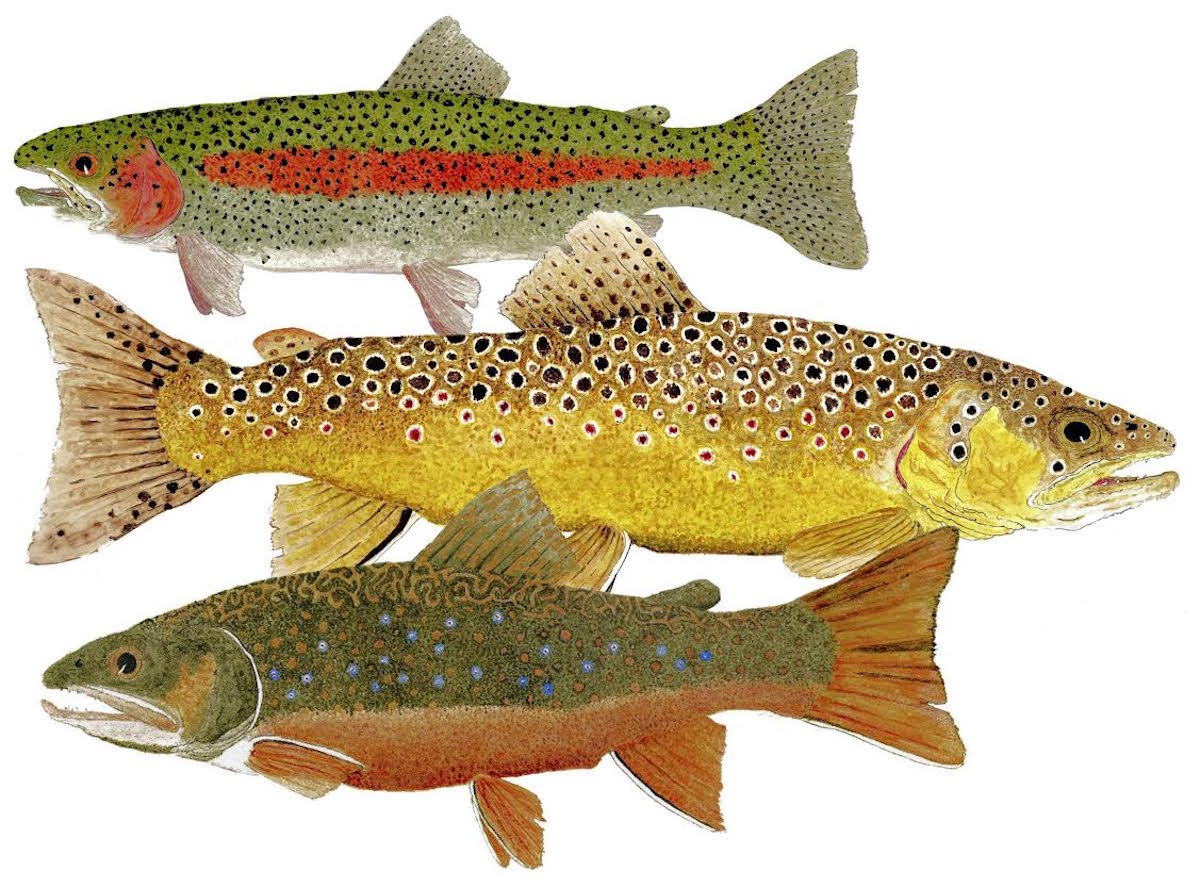
Adult brown trout. Photo by Mike Cline May 1, 2019 – Wikimedia Commons image.
Fishing For a Personality; More Than Just a Species
By Aidan Barry / Envirobites / May 1, 2o19
Whenever I encounter a new dog owner, the conversation ends up revolving around how unique their pet is. To some people, a dog is a dog; it will wag its tail when it’s happy and bark when it wants to be heard. To others, their dog is a mystical wizard. “Rocky can sense a genuinely good person from a negative person” was something I would politely nod to but after reading this study by Barbara Koeck, it’s given me a new perspective on the individual distinctions of fauna.
Not all animals are the same. In fact, individuals have distinct personalities and behavior. This includes animals beyond those who claim your bed as their own or that wake you up at unreasonable hours just to show you their squeak-toy.
Even fish have different temperaments from one another! Research conducted by Koeck and colleagues in Sweden addressed what behaviors and neurological indicators make certain fish more vulnerable to angling than others.
Which has left me wondering when I cast into one of my nearby rivers; who am I going to catch rather than what am I going to catch?

“Fishing” [1878] by Winslow Homer [1836–1910]: Colby College Museum of Art, The Lunder Collection. Wikimedia Commons image.
Stressful indicators
Fishing may be a source of recreation and entertainment for many anglers, but for fish, it triggers a number of stress indicators throughout their physiological system. Stress from angling can alter the weight of fish and dissuade previously caught fish to pursue lures. Stress can also be monitored in the brain and in hormone levels. Cortisol, for example, is a hormone indicative of stress in an organism. As an individual becomes more stressed, more cortisol is released through the body, altering numerous functions within the body. By examining serotonin and dopamine within the brain we can also understand the level of stress an animal experiences.
Set up
Barbara Koeck and her team placed a total of 100 rainbow and brown trout into four test ponds, each about 720m2 and a 2m depth, and assessed what behavioral and neurological patterns were common in fish that were more often caught than others. During the experiment, all fish were tagged and monitored for activity and movement. Ponds were fished with shrimp bait and plastic lures, and two of the ponds were heavily fished with multiple anglers and two were minimally fished with a single angler. After several weeks, the ponds were drained and the fish measured for change in biomass and different stress indicators.

Rainbow trout [salmonid, Oncorhynchus mykiss] is a native to cold-water tributaries of the Pacific Ocean in Asia and North America. This illustration is by award-winning watercolorist Thom Glace.
Who’s scared of lures? Not rainbows
90% of rainbow trout and 54% of brown trout were caught at least once over the time-span of the experiment. Rainbow trout were also more likely to be recaptured than brown trout. There was one individual that was caught four times during the two weeks of experiments! More fish were also caught on shrimp bait more than lures; it has been hypothesized that the fish are more willing to risk it all for bait and a food source than a bright attractor.
Rainbow trout that were more often caught and recaptured were found to have higher pond activity and weaker cortisol response, meaning that rainbow trout were more likely to be caught swimming around the pond and were likely less stressed than other individuals who were more timid to accept bait or a lure. The research team also found rainbow trout had a more active dopamine response, meaning the trout were more motivated to go after bait and/or lures. While brown trout had a more active serotonergic response, often related to learning and memory.
Management
Trout species and individuals show different chemical responses to stress situations, so what? As anglers capture fish from wild waters, they are alter the composition of trout personality traits in the water. The removal of the highly vulnerable fish ultimately decreases the catchability of the population that remains. For preservationists and anglers who like a challenge, this may be a positive response. The fish that remain in the stream adapt and become less susceptible to angling-pressure; but for the multibillion-dollar industry that is built around fishing, findings such as this may make fisheries management reconsider the way they stock ponds and rivers.
Fish, just like your loveable pet, have unique personalities
NOTE: Why were rainbow trout less likely to be deterred from anglers? Previous studies showed that rainbow trout recover faster from primary and secondary stress responses (Ruane et al. 1999) and behavior (Blanchet et al. 2007) than brown trout.
Source: Koeck B, Závorka L, Aldvén D, Näslund J, Arlinghaus R, Thörnqvist PO, Winberg S, Björnsson BT & Johnsson JI (2019) Angling selects against active and stress-resilient phenotypes in rainbow trout. Canadadian Journal of Fisheries and Aquatic Sciences. [76:320-333].
NOTE 2: Featured Image provided courtesy of Thom Glace.







